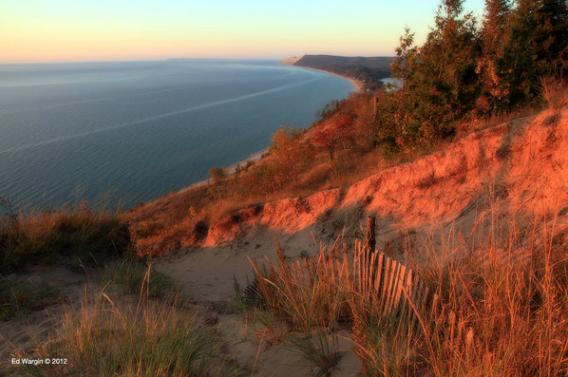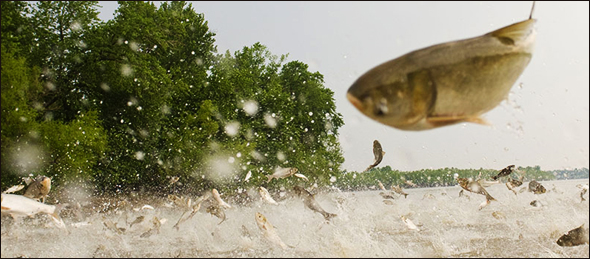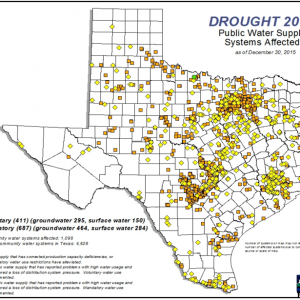From Coal Seam to Fracking, Unconventional Gas Industry Faces Opposition in Australia and South Africa
As an energy boom — propelled by natural gas — continues to gather steam, mining and drilling companies square off with landowners around the globe over who has the right to resources that are located deep below ground.
While landowners took to Australia’s streets in mid-August to demand greater protection against the potentially lucrative coal seam gas industry, opposition groups in South Africa were mustering strength against shale gas exploration that, they say, could threaten the nationally significant Karoo region.
Australia and South Africa are among an increasing number of countries around the world that are reckoning with the prospects of developing unconventional fuels to bring revenue, to diversify energy sources, and to reduce carbon emissions.
But the rapid expansion of the unconventional fuels industry, along with the large volumes of water needed to unlock gas from underground coal beds and shale rock formations, have raised concerns over the potential damage to underground water aquifers, human health, food production, and the environment. These industries are also creating competition over land and water rights, which could spill over into political and social disputes.
Dewatering Australia: Coal Seam Gas v. Agriculture
In recent weeks, Australian farmers have locked gates on properties and organized protests against coal seam gas and coal mining companies trying to tap underground resources in prime agricultural lands.
The protesters, many of them farmers, worry that coal seam gas — also known as coalbed methane (CBM) extraction, which withdraws pre-existing water from the coal seam, thus reducing the pressure and allowing the methane gas to separate from the solid coal and to flow to the surface — might pollute the water resources for drinking and farming. They are demanding a moratorium on CSG drilling, until the health and environmental impacts of the process can be assessed further. The CSG “dewatering” process typically takes two years.
Around 2,000 yellow signs bearing “Lock the Gate” slogans were hung on farm gates throughout Queensland and New South Wales in mid-August, encouraging land owners to stand up to the energy companies, Sky News reported.
Protesters also gathered at a recent mining conference in Sydney on August 18, according to ABC News.
The recent events follow months of wrangling between farmers and miners over energy production, traditionally a very influential sector in Australia. The tensions also sparked political controversy earlier this month, when the Greens Party called for new laws to give stronger rights to farmers, enabling them to keep coal seam exploration rigs off their land, Reuters reported.
According to Australian legislation, the rights to below-ground deposits belong to the government, instead of to individual landowners, meaning that citizens have a hard time keeping energy companies off their property.
Meanwhile, Australia’s CSG industry — a major source for the country’s growing liquefied natural gas (LNG) sector – plans to build roughly $US 70 billion worth of LNG projects in Queensland state over the next seven years; a scenario that is also estimated to create thousands of new jobs each year. Exploration is also advancing in neighboring New South Wales, according to Reuters.
Fracking South Africa’s Karoo Region: Shale Gas Exploration in the Desert
Similarly, South Africa has been gauging the extensive risks associated with the potentially big economic benefits of proposed shale gas drilling in its Karoo region, a semi-desert area known for its stark beauty and indigenous plants; a region that is also believed to hold substantial deposits of shale gas.
Earlier in August, Yale Environment 360 reported that opposition to natural gas drilling is growing among farmers, landowners, and environmentalists in the country, amid concerns that hydraulic fracturing, or fracking – the process of injecting water, chemicals, and sand at high pressure into rock formations to free up the oil and natural gas trapped inside – will deplete and pollute the Karoo’s scarce water supplies.
The worry is that the poverty-stricken region will become the arid twin of the Niger Delta’s swampy mangroves, where foreign oil companies and long years of conflict have contaminated the Nigerian land and water.
In July, protesters chanted outside the Shale Gas South Africa Conference in Johannesburg, where Shell South Africa – just one in a score of companies eyeing shale gas in Karoo — was to discuss its fracking plans for the region.
Earlier this year, in February, South African farmers and environmentalists voiced a public concern over plans to look for shale gas. Then, in May, the South African government said it would conduct a comprehensive feasibility study of hydraulic fracturing before it decides on the shale gas applications in its Karoo region, and the government imposed a moratorium on the use of the fracking technique until that time. This announcement came on the heels of a number of policy decisions in China, Europe, and the United States that have set diverse agendas for shale gas drilling around the world.
Source: Australia Broadcasting Corporation News, Sky News, Toowoomba Chronicle, Yale Environment 360, Reuters
A news correspondent for Circle of Blue based out of Hawaii. She writes The Stream, Circle of Blue’s daily digest of international water news trends. Her interests include food security, ecology and the Great Lakes.
Contact Codi Kozacek







Comments are closed.